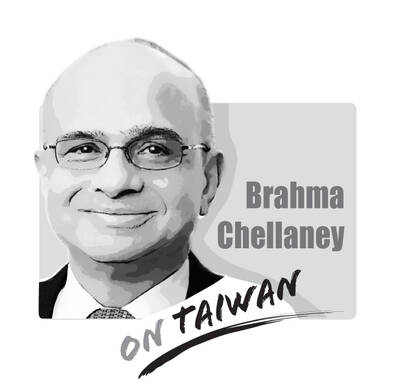Taiwan’s victory in the World Baseball Softball Confederation Premier12 championship is an historic achievement. Yet once again this achievement is marred by the indignity of the imposed moniker “Chinese Taipei.” The absurdity is compounded by the fact that none of the players are even from Taipei, and some, such as Paiwan catcher Giljegiljaw Kungkuan, are not even ethnically Chinese. The issue garnered attention around the Paris Olympics, yet fell off the agenda as Olympic memories retreated. “Chinese Taipei” persists, and the baseball championship serves as a reminder that fighting “Chinese Taipei” must be a continuous campaign, not merely resurfacing around international
Taiwan Semiconductor Manufacturing Co (TSMC) appears to be encountering some culture shock and safety issues at its new fab in Arizona. On Nov. 7, Arizona state authorities cited TSMC for worker safety violations, fining the company US$16,131, after a man died in May. The Arizona Division of Occupational Safety and Health released its six-month investigation into the fatality and cited TSMC for failing to keep the workplace free from hazards likely to cause death or serious harm. At about the same time, the chip giant was also sued for alleged discriminatory hiring practices favoring Asians, prompting a flurry of debate on whether TSMC’s
This month, the National Health Insurance (NHI) is to implement a major policy change by eliminating the suspension-and-resumption mechanism for Taiwanese residing abroad. With more than 210,000 Taiwanese living overseas — many with greater financial means than those in Taiwan — this reform, catalyzed by a 2022 Constitutional Court ruling, underscores the importance of fairness, sustainability and shared responsibility in one of the world’s most admired public healthcare systems. Beyond legal obligations, expatriates have a compelling moral duty to contribute, recognizing their stake in a system that embodies the principle of health as a human right. The ruling declared the prior

US president-elect Donald Trump is inheriting from President Joe Biden a challenging situation for American policy in the Indo-Pacific region, with an expansionist China on the march and threatening to incorporate Taiwan, by force if necessary. US policy choices have become increasingly difficult, in part because Biden’s policy of engagement with China, including investing in personal diplomacy with President Xi Jinping (習近平), has not only yielded little but also allowed the Chinese military to gain a stronger footing in the South China Sea and the Taiwan Strait. In Xi’s Nov. 16 Lima meeting with a diminished Biden, the Chinese strongman signaled little